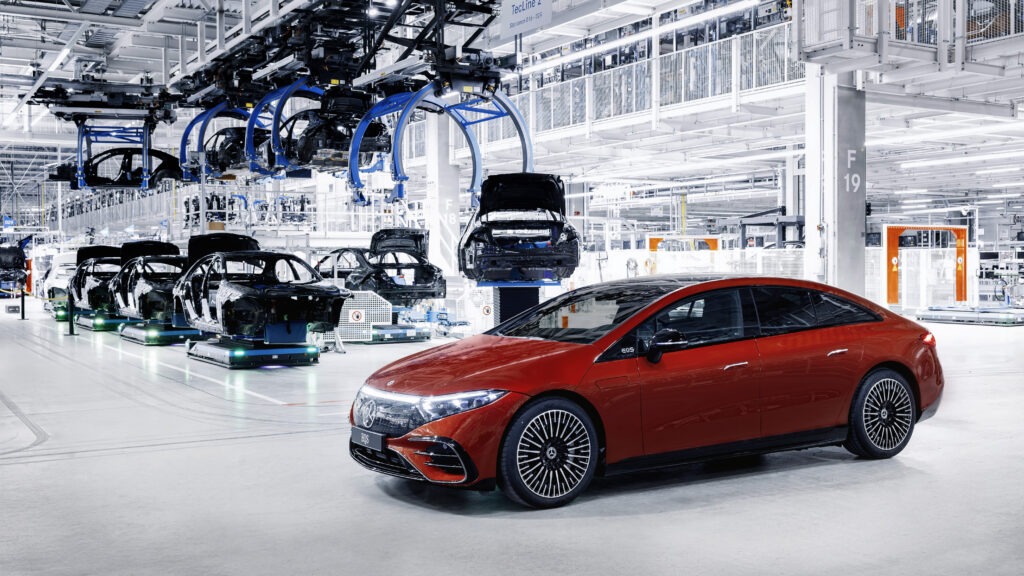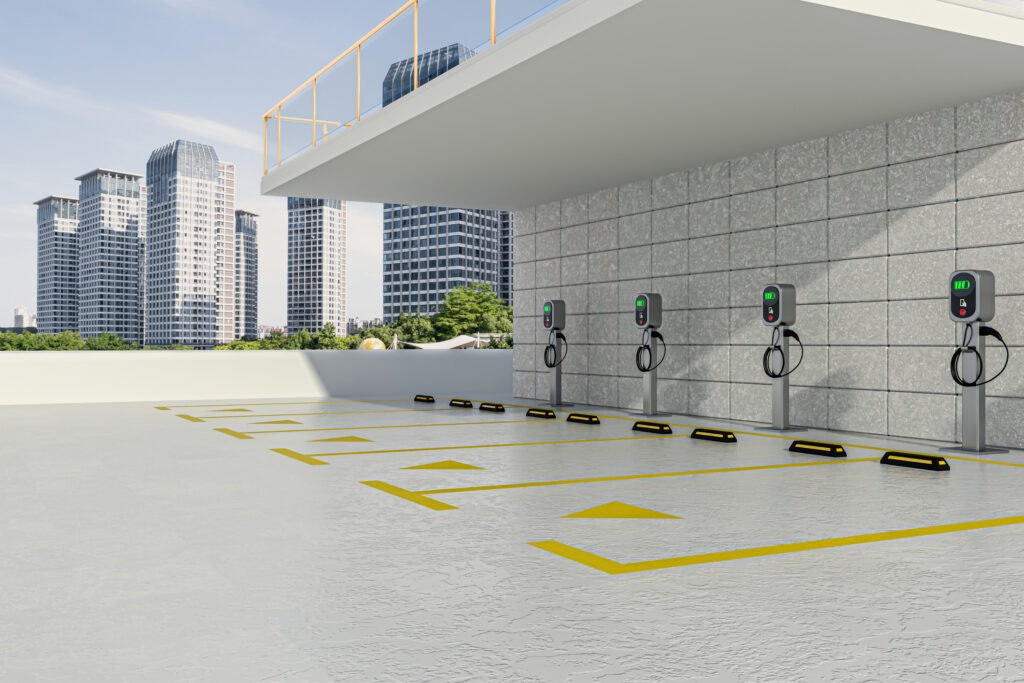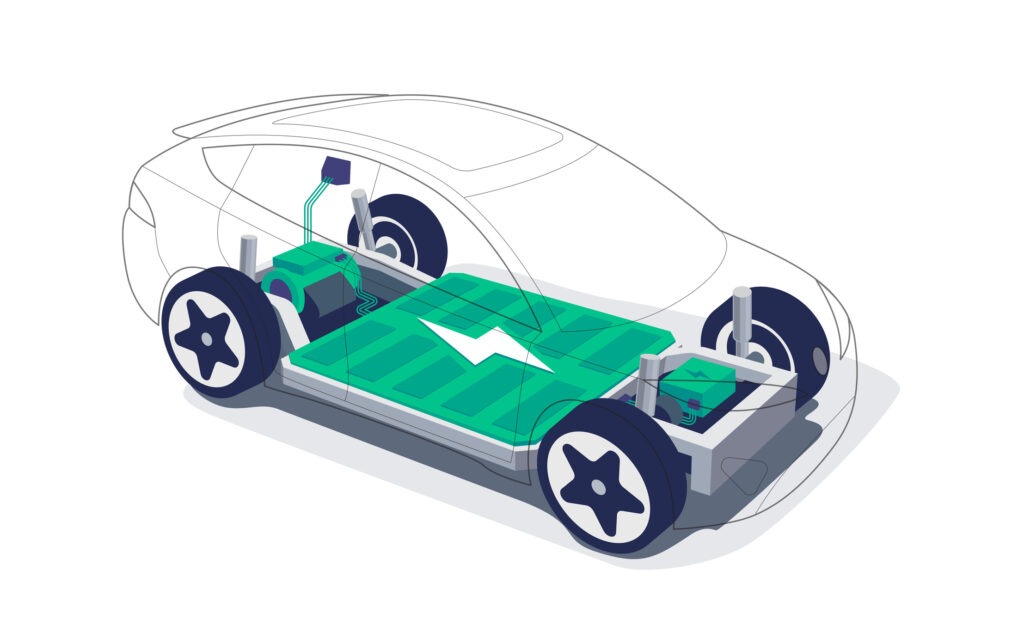How bright is the future for solar-powered cars?
28 March 2023
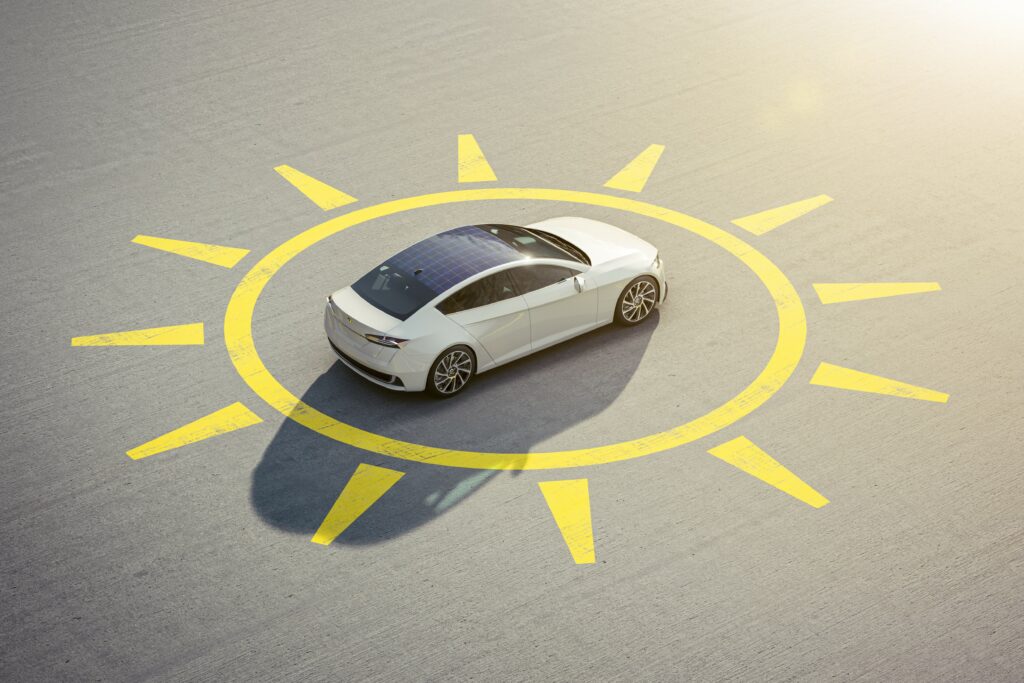
Manufacturers are trying to make electric vehicles (EVs) more sustainable, with solar power potentially enabling improved electrification. But Rebeka Shaid, Autovista24 journalist, asks whether solar-powered cars are commercially viable.
Converting energy from sunlight to provide EV drivers with added range sounds appealing and would help create a more environmentally-friendly image for select models. However, challenges remain as a certain amount of panel space is required to install the technology, which may not be suited to all climates.
While still a niche segment, EVs fitted with solar panels could make up 10% of the market in 2030, according to the Netherlands Organisation for Applied Scientific Research (TNO). The group is part of a consortium looking at how vehicles equipped with the technology could help drive the switch to an all-electric EU transport system.
A primary aim of the privately-led consortium is to research the potential of solar-powered vehicles and their impact on European EV charging infrastructure policy and regulations. TNO highlights that around 30 truck trailers featuring solar cells on their roofs can be found roaming around the streets in Europe, making commercial transportation more sustainable. To better understand the commercial aspects of this technology, it is worth considering how manufacturers are deploying it.
Hybrids and concept cars
Several vehicles featuring solar cells are either in the works or already available. Hyundai was one of the first legacy carmakers to start exploring the technology. Back in 2019, the South Korean manufacturer announced the launch of a car equipped with a solar roof charging system, the Sonata Hybrid.

In hybrid vehicles, the technology can improve fuel efficiency and reduce emissions. In Hyundai’s case, the technology allowed for 30% to 60% of the Sonata’s battery to be charged via solar power.
Then there is Toyota’s all-electric SUV, the bZ4X, which offers an optional solar panel roof in selected markets. Captured solar energy is used for charging the EV battery and helps operate auxiliary systems. In sunny climates, the technology could provide enough power to add 11.7km of range per day, according to the carmaker. This might not be an enormous increase but could help ease range anxiety.
Looking more left-field, various concept vehicles featuring solar panels have also been revealed over the years. Kia presented the EV9 Concept at the Los Angeles Auto Show in 2021, which showed off a solar panel built into the hood. But Kia confirmed with Autovista24 that solar technology did not make it into the production model, which is due to celebrate its world premiere later this month.
Tesla has also given solar-powered vehicles some thought, with reports that the company’s Cybertruck might include the option for a retractable solar bed cover. In 2022, the company presented a solar trailer concept capable of extending an EV’s range.
Real-life struggles
These developments show that the EV market is rife with innovative ideas to make electromobility more sustainable. Apart from established players, several startups have made it their mission to bring solar-powered electric cars to the market.
But recent months have been tumultuous for these young companies and the industry is going through troublesome times. Dutch startup Lightyear is one of the main players in this segment, with the manufacturer eager to build scalable and grid-independent solar EVs.
It had previously developed the Lightyear 0, which it dubbed ‘the first production solar car in the world’. But things did not go smoothly as the model’s production company had to file for bankruptcy, suspending the production of the Lightyear 0 model.
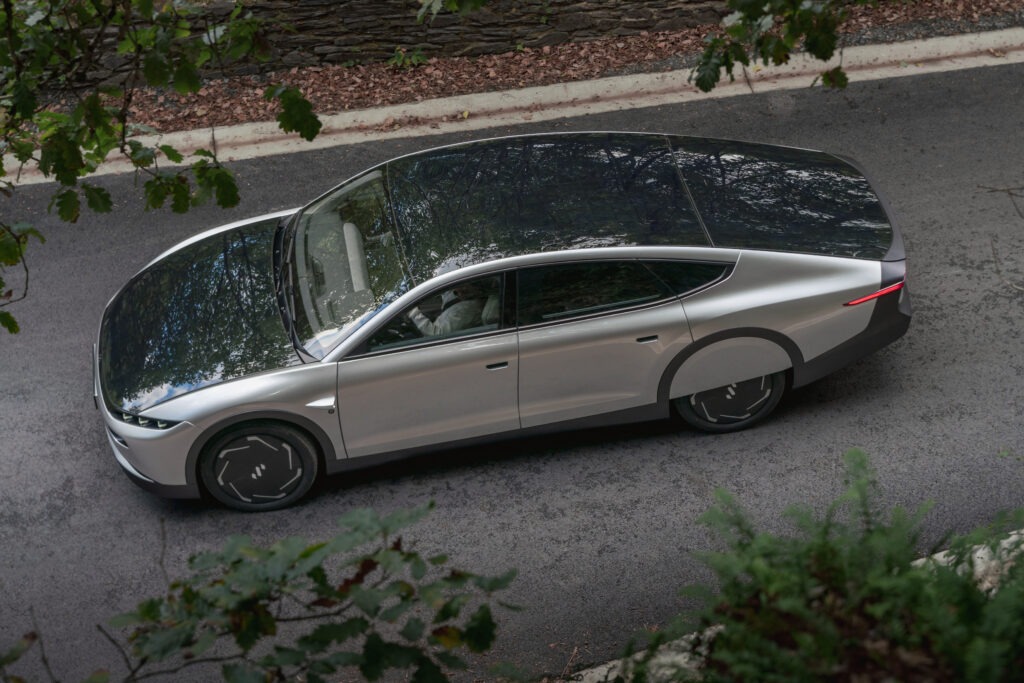
Lightyear has since set up a new company and told Autovista24 that it was ‘working hard’ on its relaunch, focusing exclusively on bringing the Lightyear 2 to life. With a list price starting at €40,000, this ‘affordable’ solar EV will aim to provide 800km of range. The Dutch startup was recently able to raise €8 million in one day, a clear sign that investors still believe in the concept.
US manufacturer Aptera also found itself short on money but has just announced a sizeable pre-order, valued at $3.35 million (€3.10 million). The company is working on a three-wheeler that can provide up to 1,000 miles (1,609km) in range on a single charge. While not a car, the built-in solar technology adds up to 40 miles of range a day to the vehicle.
‘We believe solar mobility is the future. By reimagining the shape of transportation, we believe we can apply breakthrough solar technology to every aspect of our lives — on passenger and utility vehicles, trucks, homes, boats, planes, and more,’ Aptera told Autovista24.
‘We see the biggest barriers to universal EV adoption being cost, charging infrastructure inequality, and range anxiety. With an efficiency-first vehicle platform, Aptera offers decisive solutions including affordability, grid independence, and industry-breaking ranges,’ the company added.
Dimmed hopes?
For anyone following the development of solar-powered vehicles, German startup Sono Motors is a familiar name. The company has experienced financial troubles and recently had to lay off 300 staff as it scrapped its solar car programme.
Turning around its business strategy, the company will no longer build the solar-powered Sion. Instead, Sono Motors wants to concentrate on equipping and retrofitting third-party vehicles with its patented solar technology.
While it signed a new order with a vehicle manufacturer this month, news has come to light that business operations remain challenging. Various media outlets have reported that the company could be facing insolvency.
In a filing with the US Securities and Exchange Commission (SEC), Sono Motors revealed: ‘Our auditors have expressed substantial doubt about our ability to continue as a going concern and there is a material risk that we may become insolvent.’
When contacted by Autovista24, the startup said the disclosure does not mention ‘any immediate insolvency.’
It added, ‘Sono Motors’ reliance on external capital is not new and remains a part of our public disclosure. There is always a risk that funding rounds might not materialise. However, since the termination of the Sion program, Sono Motors’ capital requirements have significantly declined. We are in discussions to raise the needed capital.’
Taking these developments into account, it looks like traditional battery-electric vehicles (BEVs) will remain the mainstay for electrification – for now at least. While solar-powered cars could be part of the solution to make transportation more sustainable, the companies championing the technology appear to be facing issues, with startups in particular struggling to secure enough funding.
Does this mean the future is looking dimmer for solar-powered EVs? Only time will tell, but the technology has proven to be effective and could make real contributions to electromobility one day.
